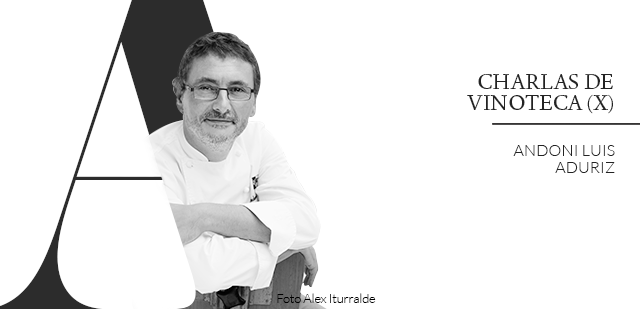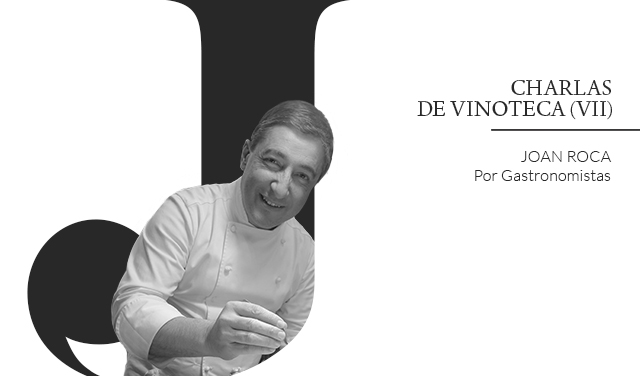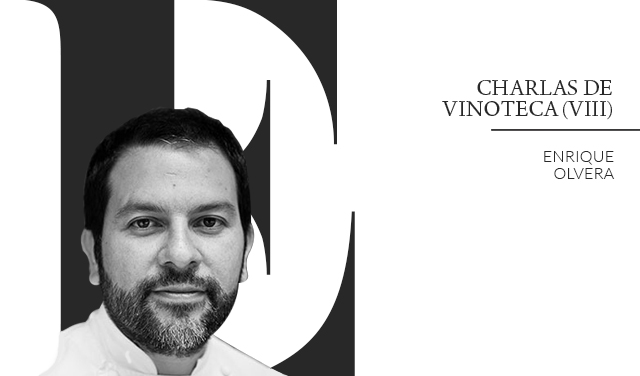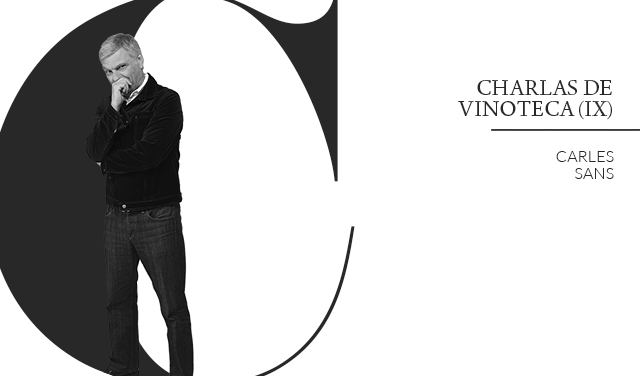Wine Shop Talk (X): Andoni Luis Aduriz

“Without a global market, a local product like wine would not reach the extraordinary heights it is currently achieving.” A.L. Aduriz
Andoni Luis Aduriz is the kind of chef whose gastronomic projects (the Mugaritz restaurant has two Michelin stars) are as interesting as what he has to say. Both come from the same place: profound reflection. These are his thoughts (and feelings) about the wine world:
“Wine reflects a lot of things. It is culture, the expression of a landscape, the product of domesticating the landscape. During the production process, the wine takes on a particular style as a result of decisions made by people, which makes it a cultural product... This is the predominant message, and there's nothing wrong with it."
"But there is an idea that helps me in thinking about the wine world and which I always give as an example: sustainability and the balance this involves. If the wines from any important wine region were only consumed within their immediate geographical area, they would have reached a certain level of quality. Most likely they'd be good wines. But thanks to an incredibly discerning globalized world eager for new things, wine regions which already made excellent wines have reached extraordinary heights. This is due to the fact that their reach extends across the globe, and therein lies the paradox. These are no longer local brands. Appellations of origin like La Rioja, Ribera del Duero or Penedès have very discerning followers beyond Spain's borders, far more than they would initially have had if they were only competing in a local market. It's food for thought:
“Si no hay mercado global, un producto local como el vino no puede llegar a las cotas de excepcionalidad que está alcanzando.”
"At the end of the day, and I'm simplifying here, wine is fermented grape juice, and no one talks about that. What we do talk about nowadays is the expression of the soil, the expression of the region, the expression of the grape variety...and how to arrange this finite number of pieces, which, depending on how they are combined, offer one expression or another. It's curious to see how a seemingly normal product has come to express so many things, with so many connotations and nuances that make it unique."
"Chefs are usually very self-centered in that they prepare their recipes while the sommeliers follow their lead and seek a wine to match the dish. But as a consumer, I find the opposite often happens—I want to drink something specific and then I adapt the food to what I want to drink. Wine is exceptional in and of itself, sometimes I simply drink a glass of wine without food."
"I'll be honest, I'm not loyal to any specific type of wine. Diversity is one of my favorite things. If I'm in Ribera del Duero or in the Penedès or in Chile, I want to drink a Ribera del Duero or a Penedès or a Chilean wine. And if I'm in a place where winemaking seems far-fetched, for example in Colombia, and someone tells me there are three wineries that make wine, but it's nothing extraordinary, I won't care, I will want to try them. I like trying what is made in a particular place."
"Something happens to me from time to time: suddenly I'll feel like having something different, and I'll tell myself, ‘Hey, I know I'm breaking the rules here, but I feel like having a white wine.’ Sometimes I'll want a fresh wine and sometimes I'll want a wine with great depth and lots of nuance. I don't base my decision on what I'm eating, but rather on my mood and what sounds good and appealing in that moment. When it comes to picking a wine, my mood is the deciding factor, not the food on my plate.”



